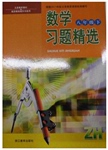题目内容
阅读填空
[1]Global difference in intelligence is a sensitive topic, long filled with a large number of different opinions. But recent data has indeed shown cognitive (认知的) ability to be higher in some countries than in others. What's more, IQ scores have risen as nations develop—a phenomenon known as the "Flynn effect". Many causes have been put forward for both the intelligence difference and the Flynn effect, including education, income, and even non-agricultural labor. Now, a new study from researchers at the University of New Mexico offers another interesting theory: intelligence may be linked to infectious-disease rates.
[2]The brain, say author Christopher Eppig and his colleagues, is the "most costly organ in the human body". Brainpower consumes almost up to 90 percent of a newborn's energy. It's clear that if something affects energy intake while the brain is growing, the impact could be long and serious. And for vast parts of the globe, the biggest threat to a child's body—and therefore brain—is parasitic (由寄生虫引起的) infection. These illnesses threaten brain development________________. They can directly attack live tissue, which the body must then try every means to replace. They can invade the digestive pipe and block nutritional intake. They can rob the body's cells for their own reproduction. And then there's the energy channeled (输送) to the immune system to fight the infection.
[3]Using data on national "disease burdens" (life years lost due to infectious diseases) and average intelligence scores, the authors found they are closely associated. The countries with the lowest average IQ scores have the highest disease burdens without exception. On the contrary, nations with low disease burdens top the IQ list.
[4]If the study holds water, it could be revolutionary for our understanding of the still-confusing variation in national intelligence scores.
1.What is the main idea of the text?(no more than 10 words)
________________________________________________________________________
2.Complete the following statement with proper words.(no more than 4 words)
Those countries that have the ________________ are always at the bottom of the IQ list.
3.Fill in the blank in Paragraph 2 with proper words.(no more than 5 words)
___________
4.What can cause intelligence difference?(no more than 8 words)
______________________________________________________________________
5.What does the word “they” (Line2, paragraph3)probably refer to? (no more than 8 words)
______________________________________________________________________
1.Why do IQ scores vary by nation? / Why do IQ scores vary from nation to nation?/Different IQ between nations may result from infectious diseases.
2.highest disease burdens
3.in several ways
4.Education, income and non-agricultural labor.
5.National disease burdens and average intelligence scores
【解析】
试题分析:
1.文章主要讲述的正是在不同的国家里人们的智商是不一样的。
2.根据文章倒数第二段The countries with the lowest average IQ scores have the highest disease burdens without exception.那些疾病流传很广的国家的人们往往智商都不算高。
3.根据下文可知是疾病在不同的方面威胁着人们智力的发展。
4.根据文章第一段4,5行Many causes have been put forward for both the intelligence difference and the Flynn effect, including education, income, and even non-agricultural labor.
5.They指代的正是上一句Using data on national "disease burdens" (life years lost due to infectious diseases) and average intelligence scores中提及的national disease burdens and average intelligence scores
考点:考查阅读表达
点评:阅读表达的题目要根据文章的内容进行回答,有的是细节题,到相关的段落寻找关键句,得出答案,还有推理题,要根据相关的句子找出作者想要表达的意思,考查学生的理解力。

 习题精选系列答案
习题精选系列答案
阅读填空: 阅读短文,根据所读内容在表中空格处填上适当的单词或短语,每空不超过3个单词。
If people work to meet their needs, it would be good to know what these needs are. They are very simple. Dr. Maslow has suggested that people have only five needs. Everyone has them, and everyone spends his or her life trying to satisfy them. Although we may try to satisfy our needs in different ways, we all are trying to satisfy the same needs. In a way, it is these needs, which are common to all people that make us human. They seem to be a basic part of human nature.
The needs, which occur in the order shown below, can briefly be described as follows:
1. The Physiological Needs--Our needs for the things that keep our bodies alive – food, water, air, rest, elimination, etc. These needs come first. We must meet them or we will die.
2. The Safety Needs--First we need to stay alive, and then we need to be safe. There are two kinds of safety needs: the need to be physically safe and the need to be psychologically safe or secure.
3. The Belongingness Needs--Once we are alive and safe, we then try to satisfy our social need, a need to be with and accepted by other people. We discover our need for love.
4. The Esteem Needs--After our first three needs are fairly well met, we try to satisfy a fourth need. This is a need for recognition, respect, reputation. The need has two parts: self esteem(thinking well of ourselves) and the esteem of others.
5. The Self--Actualization Needs--The highest need of man is to actualize himself, to achieve his full potential, to become all that he might be. This need is one that no one ever satisfies completely, partly because we are too busy trying to satisfy our lower needs.
If Dr. Maslow is correct, those are the things we are after. Our work, rest, play--whatever we do--is done in an effort to meet one or more of those needs.
81. _____________
| Names of the Needs | 84. ______________ | 87. _____________ |
| 82. ____________ | Food, water, air, etc. | to be alive |
| Safety | a. physically safe b. 85. __________ (secure) | to be safe |
| Belongingness | 86. be _________ | to satisfy 88. ____________ |
| 83. ___________ | by other people(for love) recognition, respect, reputation | 89. _____ and esteem of others |
| Self-Actualization | | a. to achieve full potential b. 90. ____________ c. to become all that one might be |